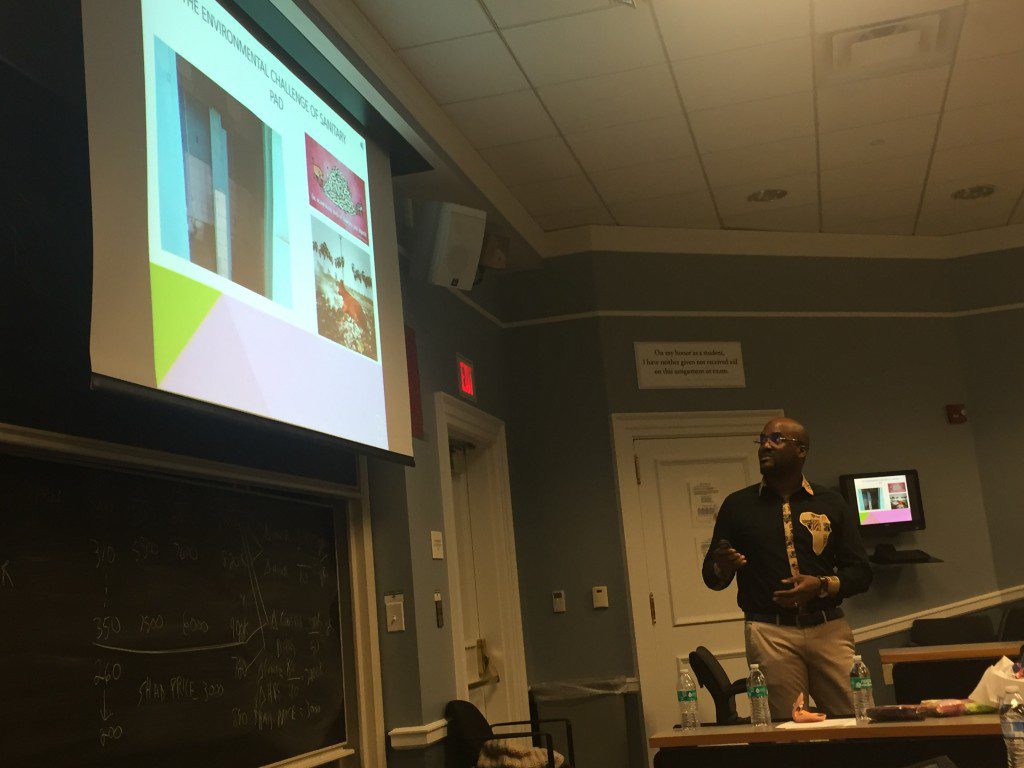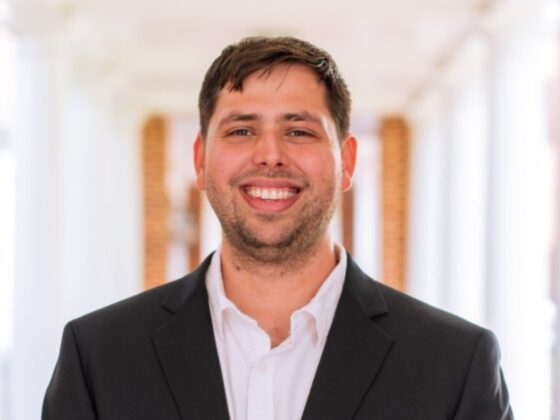By Kristen Fisher
On Thursday, February 18th, Darden had the pleasure of welcoming Professor Yap Boum to lead a community discussion about his work in Africa. Pr. Boum is the Epicentre Regional Representative for Africa for Medecins Sans Frontrières and an Professor at Mbarara University of Science and Technology in Uganda and Douala University in Cameroon. Pr. Boum’s session at Darden focused on his role as a co-founder of Kmerpad, a non-profit which educates and empowers women to produce washable sanitary pads called FAM (woman in French).
Pr. Boum presented his organization to an audience of mostly students in a way which paralleled the Darden classroom experience. He began his case study by asking the group what they would do if they did not have access to sanitary items. Many of the responses were what is actually being done in Africa, including mimicking what is currently available in the market with found items. Pr. Boum discussed the environmental concerns with the waste created by using found items or disposable sanitary pads. He used the point as a segue into the three reasons Kmerpad was founded: to empower and educate girls and women and to protect the environment.
Kmerpads are hand-cut and sown by women. This process gives women a sense of accomplishment as well as a salary, allowing them to contribute to their household income which, in turn, helps to equalize their role in their households. Menstruation is a taboo topic in Africa and many girls are not told about it until they experience it. Lack of information and knowledge often leads to misunderstandings about a woman’s menstrual cycle. In addition to decreasing the number of girls who drop out of school during their menstruation, Kmerpad is educating both young girls and boys about female health.
Following his short presentation about Kmerpad, Pr. Boum turned the floor back to the audience and asked those in the room to engage. He explained that the organization is at a crossroads and sought advice and opinions on how to best grow the organization in a way that would remain true to Kmerpad’s three goals. The students provided several suggestions and diverse points of view, creating an engaging discussion.





